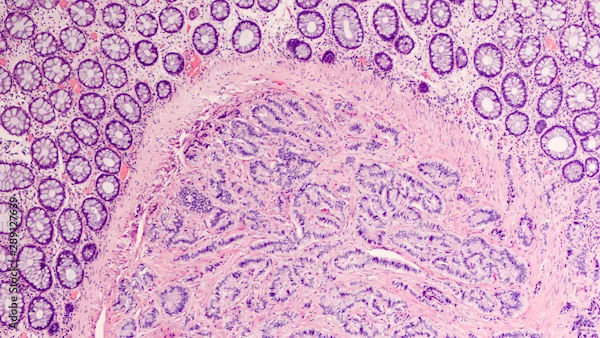Malignant and Benign Tumours Explained
Know about the malignant and benign tumours, what they are, types, symptoms, causes, and they are dangerous. Learn the key differences between them, diagnosis, management and treatment options.

Written by Dr. J T Hema Pratima
Reviewed by Dr. Shaik Abdul Kalam MD (Physician)
Last updated on 13th Jan, 2026

Introduction
Finding out that you or a loved one has a tumour can be overwhelming. The terms malignant and benign may sound scary, but understanding what they mean can help ease your worries. This article explains the differences between these two types of tumours, their symptoms, causes, and how they affect your health.
We’ll also share tips on managing them and when to seek medical help.
What Are Tumours?
A tumour is an abnormal growth of cells in the body. Not all tumours are cancerous; some are harmless, while others can be dangerous. Tumours are classified into two main types:
1. Benign Tumours – Non-cancerous, slow-growing, and usually not life-threatening.
2. Malignant Tumours – Cancerous, can spread to other parts of the body, and require immediate treatment.
Let’s explore each type in detail.
Consult an Oncologist for Personalised Advice
Benign Tumours: Harmless Growths
It includes:
What Are Benign Tumours?
Benign tumors are non-cancerous growths that do not spread to other body parts. They grow slowly and are often surrounded by a protective capsule, making them easier to remove.
Common Types of Benign Tumours
- Lipomas – Fatty lumps under the skin.
- Fibroids – Non-cancerous growths in the uterus.
- Moles (Nevi) – Usually harmless skin growths.
- Adenomas – Tumours in glandular tissues (e.g., colon polyps).
Symptoms of Benign Tumours
Most benign tumours don’t cause symptoms unless they press on nerves or organs. Some signs include:
- A noticeable lump under the skin.
- Mild pain or discomfort.
- Changes in skin colour or texture.
- Causes of Benign Tumours
The exact cause isn’t always clear, but factors like genetics, inflammation, or injuries may contribute.
Are Benign Tumours Dangerous?
Most benign tumours are harmless. However, if they grow too large or press on vital organs (like the brain), they may need removal.
Malignant Tumours: Cancerous Growths
It includes:
What Are Malignant Tumours?
Malignant tumours are cancerous and can invade nearby tissues or spread (metastasise) to other body parts through blood or lymph nodes.
Common Types of Malignant Tumours
- Carcinomas – Start in the skin or tissues lining organs (e.g., lung, breast cancer).
- Sarcomas – Develop in bones, muscles, or connective tissues.
- Leukaemia – Blood cancer affecting white blood cells.
- Lymphomas – Affect the lymphatic system.
Symptoms of Malignant Tumours
Symptoms vary depending on the tumour’s location, but may include:
- Unexplained weight loss.
- Persistent fatigue.
- Unusual lumps that grow rapidly.
- Pain that doesn’t go away.
- Changes in bowel or bladder habits.
Causes of Malignant Tumours
Several factors increase the risk:
- Genetics – Family history of cancer.
- Lifestyle – Smoking, alcohol, poor diet.
- Environmental factors – Radiation, pollution.
- Infections – HPV, hepatitis B/C.
How Do Malignant Tumours Affect Health?
If left untreated, malignant tumours can spread, damage organs, and become life-threatening. Early detection and treatment improve survival rates.
Key Differences Between Benign and Malignant Tumours
When to See a Doctor?
Consult a doctor if you notice:
- A new lump that grows quickly.
- Persistent pain or unexplained weight loss.
- Changes in skin moles (colour, size, bleeding).
Early diagnosis is crucial, especially for malignant tumours.
Diagnosis and Treatment Options
It includes
How Are Tumours Diagnosed?
Doctors use tests like:
- Biopsy – Taking a tissue sample for lab testing.
- Imaging tests – MRI, CT scan, X-ray.
- Blood tests – Checking for cancer markers.
Get Your Health Assessed
Treatment for Benign Tumours
- Observation – If small and harmless.
- Surgery – If causing discomfort or growing.
Treatment for Malignant Tumours
The treatment includes:
- Surgery – Removing the tumour.
- Chemotherapy – Using drugs to kill cancer cells.
- Radiation therapy – Targeting tumours with high-energy rays.
- Immunotherapy – Boosting the immune system to fight cancer.
Lifestyle Tips to Reduce Tumour Risk
While not all tumours can be prevented, a healthy lifestyle lowers risks:
- Eat a balanced diet – More fruits, vegetables, and whole grains.
- Exercise regularly – At least 30 minutes daily.
- Avoid smoking and excessive alcohol – Major cancer risk factors.
- Protect from sun exposure – Use sunscreen to prevent skin cancer.
- Get regular check-ups – Early detection saves lives.
Final Thoughts
Understanding the difference between benign and malignant tumours helps in making informed health decisions. While benign tumours are usually harmless, malignant ones need prompt treatment. Stay aware of your body, maintain a healthy lifestyle, and consult a doctor when necessary.
Consult an Oncologist for Personalised Advice
Consult an Oncologist for Personalised Advice

Dr. Sanchayan Mandal
Medical Oncologist
17 Years • MBBS, DrNB( MEDICAL ONCOLOGY), DNB (RADIOTHERAPY),ECMO. PDCR. ASCO
Kolkata
MCR SUPER SPECIALITY POLY CLINIC & PATHOLOGY, Kolkata

Dr.sanchayan Mandal
Medical Oncologist
17 Years • MBBS, DrNB( MEDICAL ONCOLOGY), DNB (RADIOTHERAPY),ECMO. PDCR. ASCO
Kolkata
Dr. Sanchayan Mandal Oncology Clinic, Kolkata

Dr. Harsh J Shah
Surgical Oncologist
15 Years • MS, MCh (GI), DrNB (GI)
Ahmedabad
Apollo Hospitals Gandhinagar, Ahmedabad

Dr. V R N Vijay Kumar
Surgical Oncologist
9 Years • MBBS, MS (Gen. Surg.), DNB (Surg. Onco.)
Ahmedabad
Apollo Hospitals Gandhinagar, Ahmedabad

Dr. Amit Choraria
Surgical Oncologist
18 Years • MBBS, MS (Surgery) Fellow, Surgical Oncology, Tata Medical Center (FSO) Fellow, European Board of Surgery (Surgical Oncology) (FEBS) Fellow, Minimal Access Surgery (FMAS) Fellow, Indian Association of Gastrointestinal Endosurgeons (FIAGES) UICC Fellow, Royal Marsden NHS, London, UK Visiting Scholar, Plastic Reconstructive Surgery, CGMH, Taiwan Fellow, Robotic Surgical Oncology, Vattikuti Foundation, USA
Kolkata
Apollo Multispeciality Hospitals , Kolkata, Kolkata
Consult an Oncologist for Personalised Advice

Dr. Sanchayan Mandal
Medical Oncologist
17 Years • MBBS, DrNB( MEDICAL ONCOLOGY), DNB (RADIOTHERAPY),ECMO. PDCR. ASCO
Kolkata
MCR SUPER SPECIALITY POLY CLINIC & PATHOLOGY, Kolkata

Dr.sanchayan Mandal
Medical Oncologist
17 Years • MBBS, DrNB( MEDICAL ONCOLOGY), DNB (RADIOTHERAPY),ECMO. PDCR. ASCO
Kolkata
Dr. Sanchayan Mandal Oncology Clinic, Kolkata

Dr. Harsh J Shah
Surgical Oncologist
15 Years • MS, MCh (GI), DrNB (GI)
Ahmedabad
Apollo Hospitals Gandhinagar, Ahmedabad

Dr. V R N Vijay Kumar
Surgical Oncologist
9 Years • MBBS, MS (Gen. Surg.), DNB (Surg. Onco.)
Ahmedabad
Apollo Hospitals Gandhinagar, Ahmedabad

Dr. Amit Choraria
Surgical Oncologist
18 Years • MBBS, MS (Surgery) Fellow, Surgical Oncology, Tata Medical Center (FSO) Fellow, European Board of Surgery (Surgical Oncology) (FEBS) Fellow, Minimal Access Surgery (FMAS) Fellow, Indian Association of Gastrointestinal Endosurgeons (FIAGES) UICC Fellow, Royal Marsden NHS, London, UK Visiting Scholar, Plastic Reconstructive Surgery, CGMH, Taiwan Fellow, Robotic Surgical Oncology, Vattikuti Foundation, USA
Kolkata
Apollo Multispeciality Hospitals , Kolkata, Kolkata


.webp)

